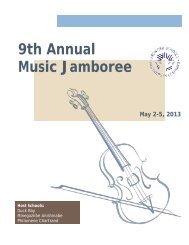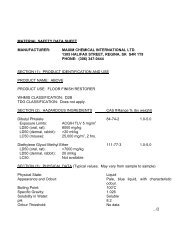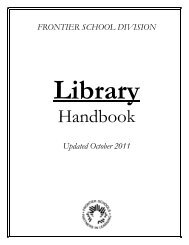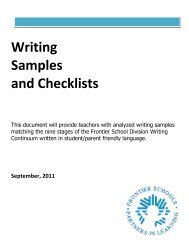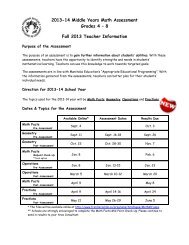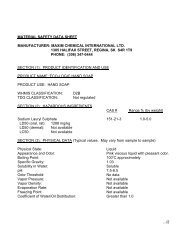The War Diaries of Francis James Whiting
The War Diaries of Francis James Whiting
The War Diaries of Francis James Whiting
Create successful ePaper yourself
Turn your PDF publications into a flip-book with our unique Google optimized e-Paper software.
January 13<br />
Fixed up shelter during day. Slept a little during forenoon. 68 [R.] McCullach<br />
[McCullough] went on pass. [A.H.] Penny sent in his place. [G.] Neil<br />
[Neale] and I slept together in dugout. Rats and mice very plentiful. 69<br />
January 14<br />
Heavy bombardment during afternoon. Lieut. [E.F.] Newcombe struck in<br />
the jaw with rifle grenade. Expected to live. 70<br />
January 15<br />
Heavy bombardment at noon again today. Shrapnel coming back from<br />
shells that land in the German trenches 100 yards away. No casualties.<br />
January 16<br />
Normal afternoon strafe. Came out <strong>of</strong> trenches tonight. Relieved by 42 nd .<br />
Marched through Neuve Eglise on way back to Dranoutre. N.E. very badly<br />
shelled. Nothing there at all. Very pretty village once. Billeted in barn near<br />
Dranoutre. Slept gloriously. 71<br />
other top and slopes down … <strong>The</strong>re is not a loop-hole in the entire parapet, there are hardly any<br />
parados and I doubt if any <strong>of</strong> the so called dugouts are even shrapnel pro<strong>of</strong>. <strong>The</strong> men must never<br />
be without their equipment and we do not even take a blanket, or a waterpro<strong>of</strong> sheet in with us,<br />
so we can look forward to an uncomfortable four days.” Letters <strong>of</strong> Agar Adamson 1914 to 1919,<br />
127.<br />
68 When on the frontlines, Adamson insisted upon “the men taking every moment <strong>of</strong> rest coming<br />
to them.” Even at that, some broke under the strain. On January 14, he wrote, “Last night had two<br />
men doing their tour in a listening post, one very young lad, name Hale fainted … Two men have<br />
gone to hospital suffering from what is now called ‘system breakdown.’” Letters <strong>of</strong> Agar<br />
Adamson 1914 to 1919, 129.<br />
69 Maj. Adamson noted this and worse. “<strong>The</strong> trenches are full <strong>of</strong> mice and rats, the stench in<br />
places is awful, and even chloride <strong>of</strong> lime won’t keep it down. <strong>The</strong> back <strong>of</strong> the trench is a mass <strong>of</strong><br />
marked and unmarked graves. We have in 2 days, by the help <strong>of</strong> digging parties day and night<br />
from the two companies in support, filled and put in place, 4,000 sandbags and are constantly<br />
coming on dead bodies in all stages <strong>of</strong> decomposition.” Letters <strong>of</strong> Agar Adamson 1914 to 1919,<br />
128.<br />
70<br />
According to the <strong>War</strong> Diary <strong>of</strong> the PPCLI, Lieutenant Newcombe’s injury occurred on 16<br />
January 1916.<br />
71 Frank’s four days in the trenches had ended, but not for long. On January 12, Adamson<br />
described the routine as follows: “After 4 days [in the frontlines] we go back into Divisional<br />
Reserve and rest, no digging. 5 miles back into tents for 4 days. We then hold the same line<br />
again, but on that occasion Companies 3 and 4 are in the firing line. 1 and 2 are in fairly close<br />
support and supply working parties, all day and night. After 4 days we go back to Brigade<br />
Reserve (where we are now) and supply digging parties all day and night, after 4 days we begin<br />
the tour again and 1 and 2 again go into the firing line. Thus the tour for a Company will be: 4<br />
days in firing line, 4 days Divisional Reserve in tents resting, 4 days in supporting trenches<br />
supplying working parties, 4 days in Brigade Reserve supplying working parties. <strong>The</strong> complete




